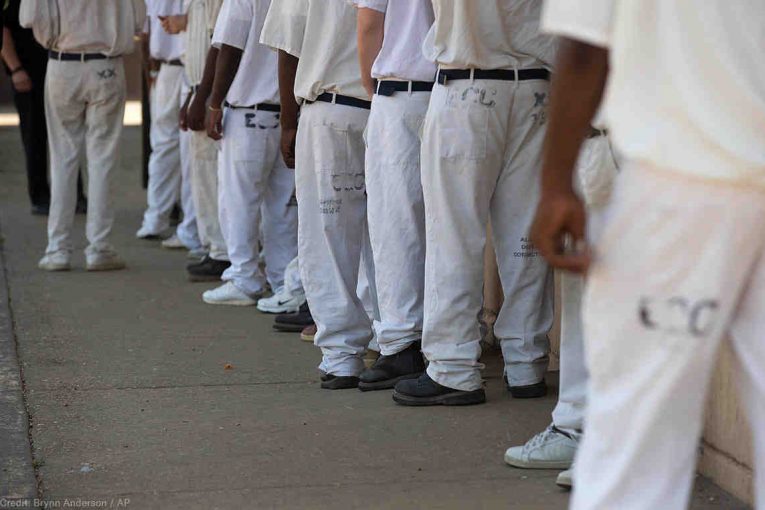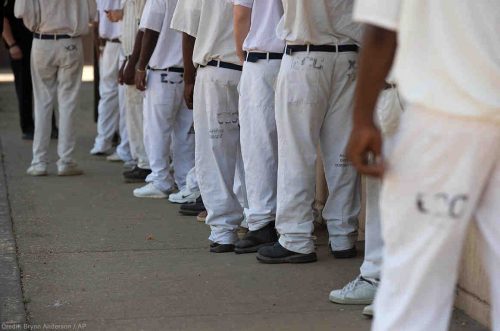

By Annie Rudolph and Melinda Kukaj
EASTHAMPTON, MASS – The Prison Policy Initiative this week released a report entitled “Ten statistics about the scale and impact of mass incarceration in the U.S.,” which demonstrates the sheer magnitude of criminalization in the U.S.
The report relies on different criminal legal research findings from which PPI produced a concise collection of useful and digestible statistics. This report intends to inform the public on the extensiveness of mass incarceration by providing journalists, policymakers, and advocates with accessible statistics.
The report emphasizes how “[t]he United States’ reliance on incarceration outpaces most of the globe.” Regardless of size, each and every state in the U.S. incarcerates more people per capita than nearly any independent democracy in the world.
The U.S. incarcerates people at a rate of 565 per 100,000 residents, so at any point in time “about 2 million people in the U.S. are locked up in jails, prisons, and other spaces of confinement.”
This rate disproportionately impacts Black people who are incarcerated at a higher rate than white people in every state, said the report, noting, “On average, Black people are imprisoned at a rate six times higher than those of white people,” adding in 2021, this rate was almost doubled in states such as Wisconsin and New Jersey where Black people were incarcerated at a rate that was 12 times that of white people.
These disproportionate impacts extend beyond incarceration to policing practices, said the report, explaining, “Police threaten or use force against more than 1 million people each year, disproportionately against Black and Latinx people.”
The report added, for Black communities, the number of people aged 16 or older, whose police interactions involved the threat or use of nonfatal force, exceeds any other group at a rate of 4,300 per 100,000 people.
Not only is the incarceration rate incredible, the system of criminalization in the U.S. is marked by people who are often incarcerated more than once, the report said, adding, “People cycle through local jails more than 7 million times each year, at least 4.9 million individuals are jailed annually, and more than 1 in 4 of them are jailed multiple times.”
In the U.S., incarceration is a condition that imposes a permanent status onto people through their criminal records, the report said, stating, as of 2020, (5) “More than 79 million people in the U.S have a criminal record,” and this creates a plethora of collateral consequences including barriers to housing, employment, and welfare assistance.
Mass incarceration, PPI states, is a far-reaching and complex system that affects people both directly and indirectly.
Its report notes the impact on families is quite direct: “Half of all Americans have an immediate family member who has been incarcerated (including) one in five people with a parent incarcerated and 2.6 million children have a parent who is currently incarcerated.”
And, said PPI, “80 percent of women in jails and 58 percent of women in prisons are mothers, and most are the primary or sole caretakers of young children.”
The financial impacts of mass incarceration are considerable and incredibly pervasive for those involved in the system, the report argues.
“Incarcerated people and their families spend upwards of $2.9 billion per year on phone calls and commissary, and annually, people owe more than $50 billion in court-ordered fines and fees,” the report explains.
The sheer magnitude of incarceration in the U.S. is due, in part notes the report, to the high number of people who are detained in jails pre-trial because they can’t afford to post bail, which, adds PPI, “represents eight months of income for the typical detained defendant.”
The carceral system’s far-reaching impact is illustrated through the massive population of people who are out in their communities but are still being monitored and controlled by the criminal legal system, the report noted, adding “3.7 million people are held under community supervision such as probation and parole—more people than are held in jails and prisons combined.”